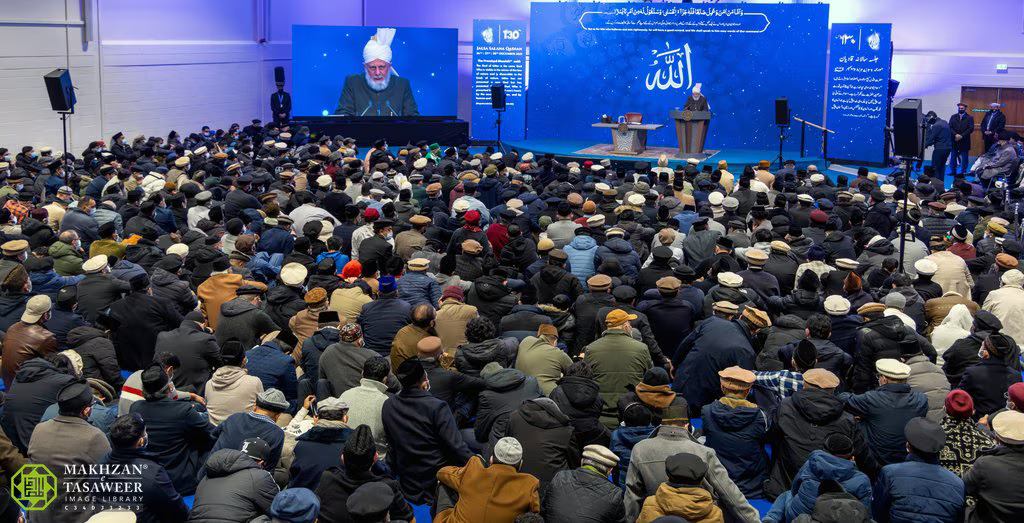SAYEDA NAYELA, CUTTACK
The most magical moment in a woman’s life undoubtedly is the moment when she finds out that she is going to become a mother. In Arabic, the term used for mother is ‘umm’ which actually means ‘the source, origin, foundation, or basis of a thing’ or its ‘support, or efficient cause of subsistence’.[1] The cost of holding such an important post in her child’s life comes with greater apprehensions too—apprehensions like: ‘Will everything be alright? How do I be a good mother? What does it take to raise a righteous child’ and so on.
In this article, we will explore how a mother in general—and a mother of this generation in particular—can raise a child who would ultimately shape the coming generation for a peaceful world.
Every generation of mothers faces challenges in raising children, and every generation feels that their challenges are greater than those of the generation before. There is a well-known saying, ‘it takes a village to raise a child’. Not only the mother but all the family members, the environment where the child resides, the school she is enrolled in, the friends she mixes with, and numerous other factors contribute towards her upbringing. But the most vital among them is the role of the mother.
What a mother sings to the cradle goes all the way down to the coffin
Children are great imitators, so they must be given something great to imitate. Hence, it is the duty of a mother to become the best role model for her child.
Children are the most precious possession in a home and a mother’s top priority should be the proper upbringing and education of her children. Giving full attention to their upbringing includes spending quality time with them and getting to know them as they develop into their own individual beings. This can be a challenge in itself as it requires time, commitment and sacrifice. And with the rise of women participating in various job sectors, this task is becoming more and more challenging, as we know that no task can be done properly without attention to a proper course of action.
Although Islam allows, and even encourages, women to pursue careers and employ their God-given faculties in building society, this does not absolve them of their prime responsibility, which is to nurture and raise the next generation to become responsible, morally upright, and contributing members of society. Hence, working mothers should always be mindful that their responsibilities at home and the training of their children are not compromised by their work outside the home.
Nations can only be empowered through mothers
The Holy Prophet Muhammadsa taught us that paradise lies under the feet of mothers.[2] People usually interpret this to mean that paradise is gained by being obedient to one’s mother, which is also true. However, the real import of the narration is that a nation can only attain a state of paradise when its mothers are righteous and impart proper moral training to their children. If the mothers are not virtuous and do not raise their children with care and integrity, those children will not grow up to be righteous either.
It can therefore be rightly said that the standard with which a nation’s mothers raise their children determines the very standard by which the nation will either produce excellence or descend into decline, resulting in a great nation or an inferior one.
The question of a child’s moral training
Research has shown that babies can hear what their mothers say while in the womb. And what is more, their brains recognise those words after birth.[3] Therefore, the moral training of a child begins from the womb itself.
For this reason, in Islam, expectant mothers are strongly encouraged to regularly recite the Holy Quran aloud. Similarly, they are also required to observe the daily prayers (Salat) without exception.
It should be remembered that children are like sponges—they absorb everything from their surroundings. Therefore, it becomes incumbent upon mothers not only to impart good teachings to their children but also protect them from worldly Mephistopheles through fervent and ceaseless prayers. Almighty Allah has bestowed a special aptitude upon mothers, and they have been endowed with a spiritual capacity to resist Satan.
The Second Caliph of the Ahmadiyya Muslim Community, Hazrat Mirza Bashiruddin Mahmud Ahmadra states:
“It is only women who can challenge Satan permanently. If women decide that they are going to make the future generations the servants of religion, then who will Satan corrupt? The future generation is not influenced by Satan but by their mothers; but mothers can make the mistake of letting them go so that they become prey to Satan. You must understand your responsibilities.”[4]
Areas of contention between parents and children
A major bone of contention in this era of technology is the reckless use of smartphones. This form of addiction is becoming more and more prevalent among children. It has been found that excessive use of such devices results in falling grades, reduced interest in physical activity, and laziness in the observance of religious obligations, such as performing prayers and the recitation of the Quran. Parents should be watchful of these signs and take action quickly.
It is important for parents to set firm boundaries, such as limiting children’s electronic engagement during times designated for religious and academic tasks. Similarly, family meals and assigned household chores will also help structure their daily routines. Likewise, children should be encouraged to engage in physical activities, like playing outside.
Moreover, as children grow older, they should be taught to exercise modesty and caution in their use of social media and electronic communication. In particular, girls should be made aware of the importance of maintaining dignity and not exposing themselves online—a concept often referred to as the ‘cyber veil’ or ‘cyber-Purdah’.
Another challenge that the parents face increasingly in this generation is the growing pressure from peer groups. Peer pressure starts at a very young age but becomes particularly difficult to navigate in middle school.
To address this, parents need to maintain open communication with their children and empower them with confidence and knowledge. They should not view their children with suspicion or distrust. When parents build trust, children will value that trust and think twice before betraying it. This will also give them the confidence to turn to their parents at times of difficulties and challenges.
Nurturing moral and religious values from an early age
While parents recognise the importance of worldly education and strive to provide the best opportunities in that regard, the moral and religious training of children is often overlooked. It is commonly assumed that they will pick up these values later in life.
However, from both a developmental and religious perspective, this delay is not in the best interest of the child. Just as early academic learning forms a foundation for intellectual growth, early moral and spiritual guidance is crucial in shaping a child’s character. It is equally important, or rather more so, to impart values that stimulate and strengthen a child’s natural moral instincts. These foundational seeds, when planted early, are far more likely to grow into lasting virtues that cannot be acquired as effectively later in life.
Role of Ahmadi households and particularly Ahmadi mothers
As Ahmadi Muslims, we are fortunate as well as entrusted with the responsibility of securing the future of our generations. Hence, Ahmadi mothers have a pivotal role in shaping the moral and spiritual upbringing of their children, making them beneficial individuals for society.
- An Ahmadi mother should lead by example for her child, showcasing her love for Allah Almighty and His Messengersa. She should remain true to her Bai’at (oath of allegiance), establish regular Salat, recite the Holy Quran in her home, maintain steadfast Purdah, refrain from falsehood, backbiting, and gossip, and create a loving and harmonious home.
- Frequent mention of Allah Almighty as a well-known Friend should be made to remind children of His presence and assure them that He is their Friend too. They should always be encouraged to pray for every little thing they need.
- Love and obedience to the institution of Khilafat should be nurtured in children from a very young age so that they understand the importance of abiding by the directives that come from the Khalifa later in life.
- Children should be encouraged to write letters to Huzur (Khalifa) regularly to request prayers. A specific day of the week can be set aside for this, and it should be shared with children that once the letter is written and mailed, the blessings of the prayer requested begin to take effect.
- Families should set aside time on a weekly basis to watch the Friday Sermons as well as other programs on MTA. The best way to help children grasp the importance of the message of the sermons is to discuss them with the children.
- Teenagers should also be taught the importance of financial sacrifice, thus fostering in them a sense of responsibility and commitment towards the Community and a desire to serve humanity.
These are the few habits that an Ahmadi household could try to inculcate in their progeny from the very beginning to protect them from worldly satan. It must always be remembered that morals are based on some predispositions. If these dispositions are corrupted during childhood, the person becomes fully equipped to commit a sin, even though he was born completely free of sin.
Emphasising the need for prayers to maintain a good home, the Promised Messiahas states:
“If you want to live safely and desire peace in your homes, you should pray a great deal. A home in which prayers are offered regularly is never destroyed by God.”[5]
Mothers as leaders
The Worldwide Head and the Current Caliph of the Ahmadiyya Muslim Community, Hazrat Mirza Masroor Ahmadaba says:
“Do not think that only men are the leaders of the righteous people. Every woman who prays for her child and tries to inculcate in her future generations the spirit of bonding with Allah, and encourages remaining steadfast on the path of righteousness will endeavour to be the leader of the righteous ones. As a caretaker of her house, she is an Imam.”[6]
Sayeda Nayela holds a Bachelor’s degree in Chemistry from Ravenshaw University, Cuttack, and currently serves as an Odisha Administrative Service (OAS) officer. She is a regular contributor for Light of Islam.
END NOTES
[1] Arabic-English Lexicon, Edward William Lane, under the word ‘Umm’
[2] Sunan an-Nasai, Kitab al-Jihad (The Book on Jihad)
[3] Learning-Induced Neural Plasticity of Speech Processing Before Birth, Eino Partanen et al. (2013), Proceedings of the National Academy of Sciences
[4] Al Azhar, compiled by Hazrat Syeda Maryam Siddiqa
[5] Malfuzat, v. 3, p. 232
[6] Address at Lajna Imaillah Annual Ijtema UK, dated 4 November 2007













4 Comments
Kashif · May 11, 2025 at 3:40 pm
JazakAllah for the beautiful article
SYED ZAFAR AHMAD · May 11, 2025 at 4:49 pm
Seems to have been well-researched and very nicely presented. On the occasion of the Mother’s Day, the article assumes special significance. It’s a commendable endeavour. Jazak’Allah.
Raffia Rabbi · May 11, 2025 at 5:45 pm
Nicely explained
Khursida · May 12, 2025 at 12:30 pm
Jazakallah…. A well written article